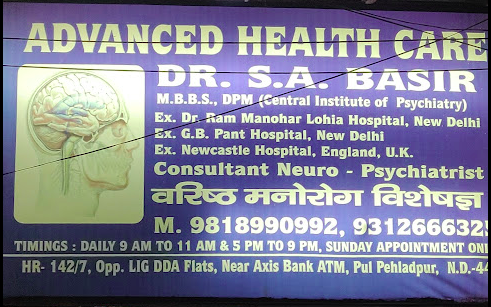Get the App
For Doctors
Login/Sign-up
Dr. Basir Sheikh Abdul
Psychiatrist36 Years Exp.
MBBS, DPM
Delhi
₹ 2,000 at clinic
₹ 350 online
Advanced Health Care
HR 142/7.oppsite to LIG flats, Pul Pehlad Pur
Consultation Fee: ₹ 2,000
View All Slots
Personal Statement
I'm dedicated to providing optimal health care in a relaxed environment where I treat every patients as if they were my own family...read more
Doctor Information
Speciality
- Psychiatrist
Other treatment areas
- Psychiatrist
Education
- MBBS , SCB Medical College Cuttack , 1990
- DPM , Central Institute of Psychiatry , 1994
Languages spoken
- English
- Hindi
Clinic Location
Plot No 30, Pocket 2, Jasola Vihar,Landmark : Near to LIC Office
Clinic of Dr. Basir Sheikh Abdul
| Clinic's Name | Fees |
|---|---|
| Advanced Health Care | ₹ 2,000 |
Get Help
Services


